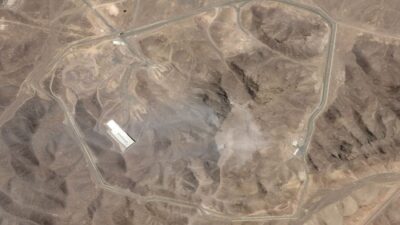The minister’s remarks follow Iran’s parliament approving a resolution to close the Strait of Hormuz, a crucial maritime pathway through which nearly 20% of the global oil trade transits. This decision is a reaction to recent US airstrikes on Iranian nuclear facilities and is expected to disrupt global energy markets.
For India, this action is notably significant as approximately 40% of its crude oil imports and over 50% of its LNG cargoes traverse this narrow waterway.
Speaking to ANI, Puri stated that the government had been prepared for such a scenario. “The rise in regional tensions was anticipated. The government, led by Prime Minister Narendra Modi, has been consistently monitoring the situation, including the possible closure of the Strait,” he mentioned.
He highlighted that India has already diversified its crude oil sources, which has significantly lessened its reliance on the Strait of Hormuz.
#WATCH | Israel-Iran conflict | Cork, Ireland: Union Minister Hardeep Singh Puri remarks, “… Given the current global situation, the escalation of tensions in the Middle East was not unforeseen. We had anticipated this. Under the PM’s guidance, the government has… pic.twitter.com/UwAGEVWdQb
— ANI (@ANI) June 22, 2025
India consumes approximately 5.5 million barrels of crude oil per day, with only 1.5 to 2 million barrels now coming through the Strait of Hormuz, while 4 million barrels are imported via other global channels, according to Puri.
He noted that Oil Marketing Companies (OMCs) maintain adequate reserves. “Most OMCs have enough stock for up to three weeks, with one company having a 25-day supply. Deliveries are ongoing through alternative routes,” he stated.
In a post on social media platform X, Puri remarked, “We have been carefully monitoring the evolving geopolitical landscape over the past two weeks. Thanks to our diversified approach, a significant portion of our oil supply is no longer reliant on the Strait of Hormuz.”
We have been closely observing the changing geopolitical dynamics in the Middle East for the past two weeks. Under PM @narendramodi Ji’s leadership, we have diversified our sources, and a significant volume of our supplies no longer comes through the Strait…
— Hardeep Singh Puri (@HardeepSPuri) June 22, 2025
He reassured the public that there is no reason for concern and that the government is engaging with international partners to ensure uninterrupted energy supplies.
Puri disclosed that Prime Minister Modi has communicated with major global leaders, including Iran’s President, urging for peace and de-escalation. “We hope the situation will stabilize rather than worsen,” he stated.
Regarding potential effects on oil prices, Puri mentioned that predictions are challenging. “Oil has recently fluctuated between $65 and $75. The real impact of the Strait’s closure will be clearer when markets reopen. However, global oil supply remains robust, bolstered by increased production from the Western Hemisphere,” he elaborated.
He also noted that traditional oil exporters are likely to maintain their supply levels to safeguard their revenues.
Puri concluded by affirming the government’s dedication to energy security. “Over the years, the Modi administration has ensured both stability and affordability of fuel for our citizens. We will continue to implement all necessary measures to protect our energy interests.”



